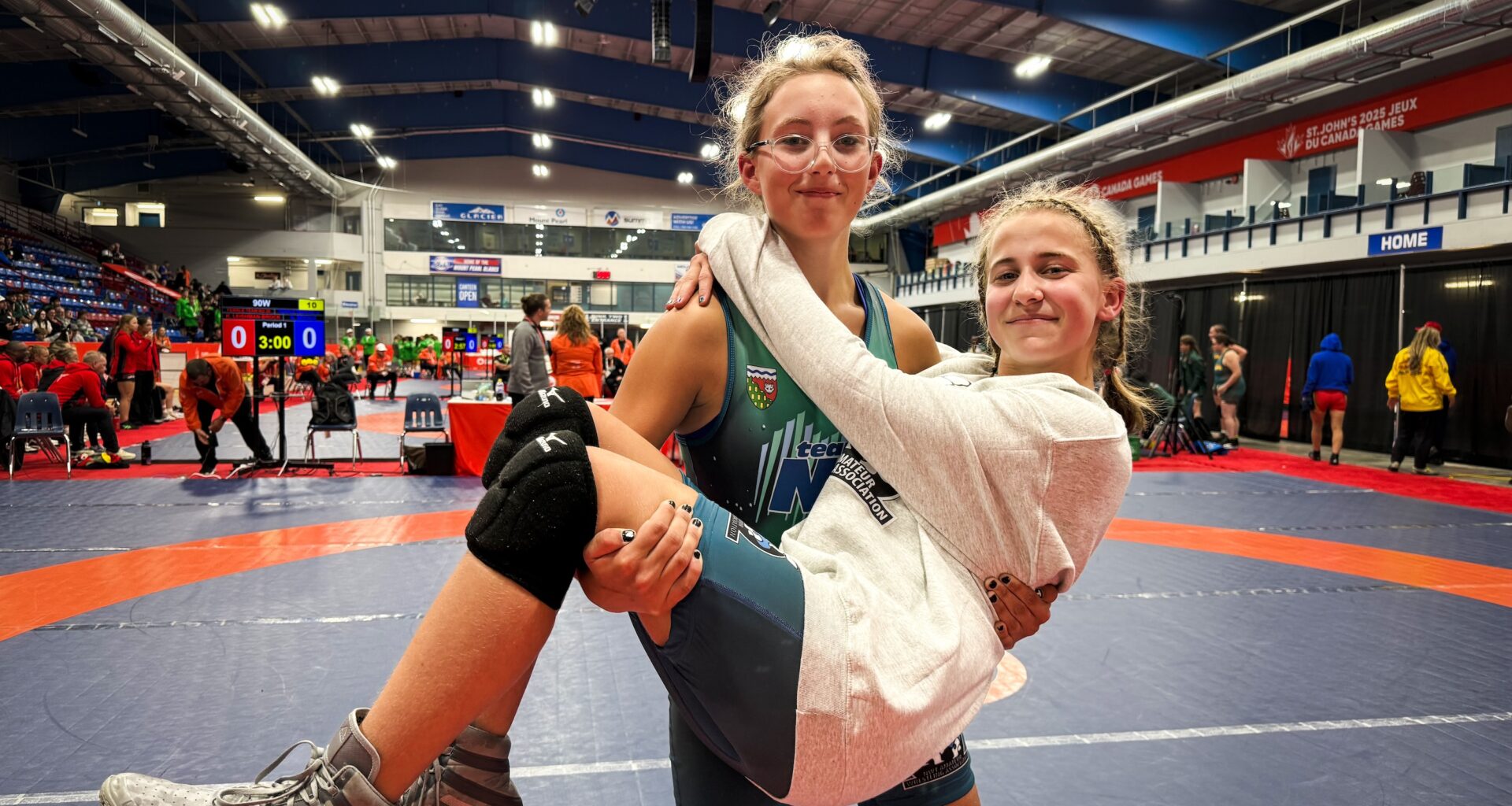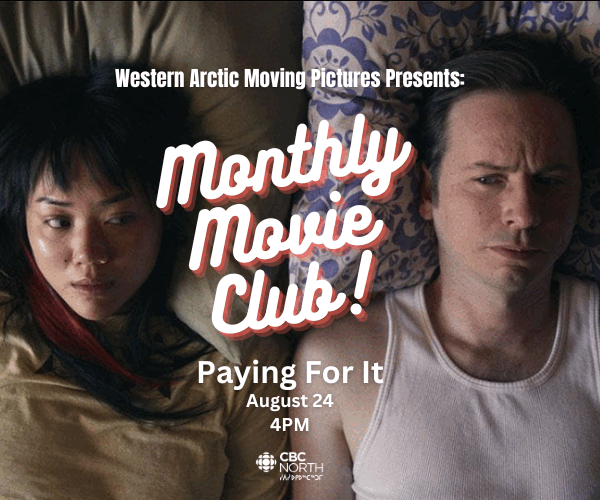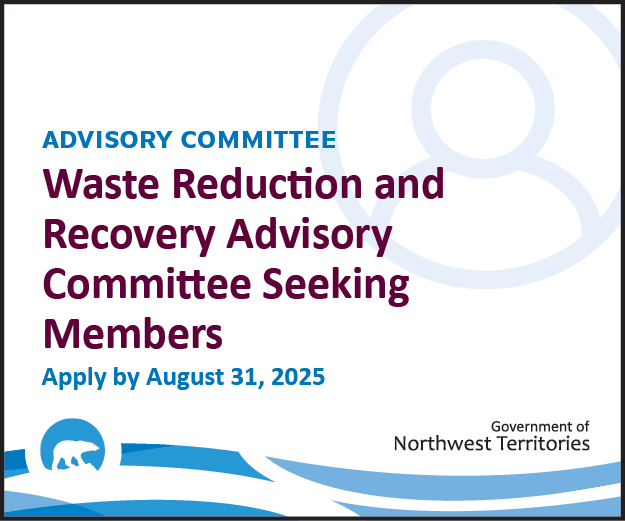Tessa Nendsa’s brother started all of this. Now, she’s wrestling an Ontario rival three years older than her who reached last year’s national final.
It is fair to say Nendsa’s debut at the 2025 Canada Games did not last long before Ontario’s Myla Blackshaw won.
But Nendsa wasn’t put off. By the time Wednesday ended, she had picked up her first victory at this level during a bout against Nunavut.
Nendsa, 14, began wrestling because her brother took up the sport “and he’s younger than me, so I wasn’t going to let him outdo me.” She also saw its value for self-defence.
When Nendsa started, she persuaded her friend Emma Pedersen, 15, to tag along. They’re now half of the NWT’s female team at Canada Games, and a bout against Ontario – a dominant province in this sport – was their welcome to the national stage in St John’s.
“When I learned we were going against Ontario, I was like, ‘OK, we can do this!’ And then when we told everyone, they were all like, ‘Oooooh.’ They were scared for us,” said Nendsa.
“It was a hard match, but I’m learning a lot.”
Alongside Yellowknife athletes Nendsa and Pedersen, the NWT’s team includes Ulukhaktok’s Alison Kuneluk and Gamètì wrestler Hannah Bekale.
Bekale admitted facing Ontario first was scary.
“Then I just got out there and I actually did a bridge. Then I got out of a pin, and I was so proud of myself, because I didn’t think I’d be able to but I did it twice,” she said, describing moves in wrestling that allow you to free yourself from an opponent in a better position.
“I was glad. And I lasted more than, like, 30 seconds, so that was good.”
The goldfish strategy
The experience of going up against a much, much stronger rival is not unique to the NWT’s wrestlers. Virtually any of the territory’s athletes at this level has endured something similar.
The NWT’s female soccer team, for example, has registered 10-0 and 8-0 defeats this week against Quebec and British Columbia respectively. Track athletes and swimmers must contend with southern rivals disappearing into the distance.
As a result, the territory’s focus is normally on personal bests, the acquisition of experience and the chance to do battle against jurisdictions of a similar size like the Yukon, Nunavut and Prince Edward Island.
Not every opponent is an Ontario, and the NWT’s bout against Nunavut on Wednesday afternoon was a much more evenly contested affair.
After Ontario, Pedersen said she employed a “goldfish” strategy taught to her by her basketball coach.
“Like a goldfish, the past is gone. Instantly forget it, look to the next thing,” she said.
For Pedersen, that was a bout against Nunavut’s Cora Ford.
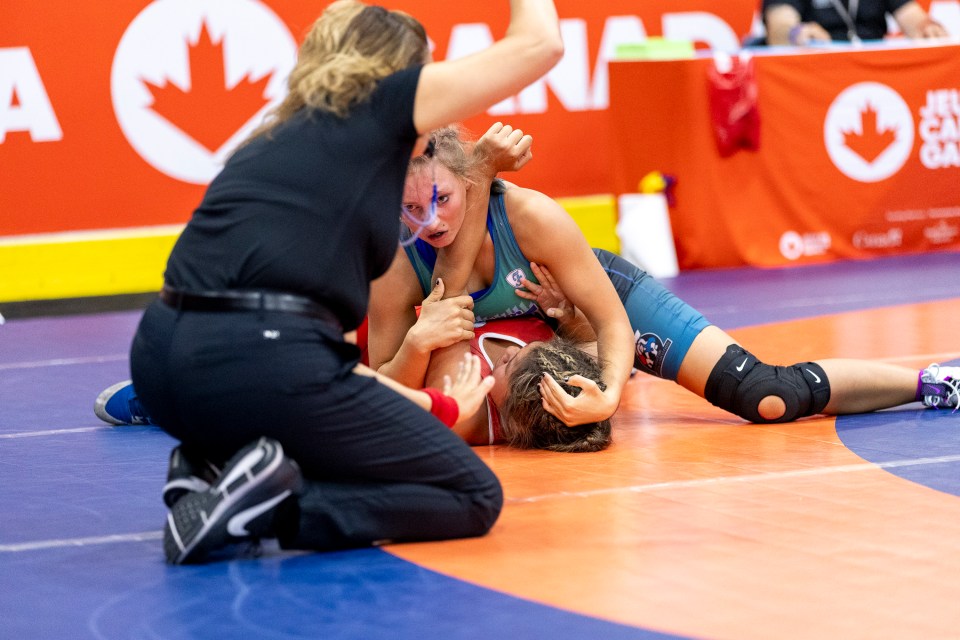 Emma Pedersen, top, and Cora Ford. Ollie Williams/Team NT
Emma Pedersen, top, and Cora Ford. Ollie Williams/Team NT
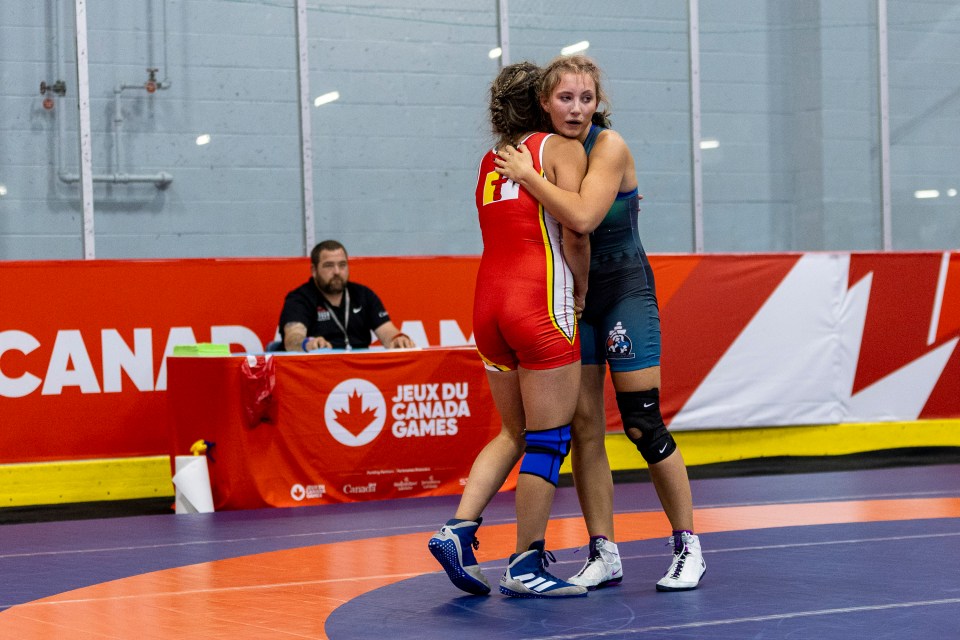 Pedersen and Ford embrace after their contest. Ollie Williams/Team NT
Pedersen and Ford embrace after their contest. Ollie Williams/Team NT
“I became really good friends with Cora over the past few days. So it was kind of like, ‘I don’t want to face my friend,’ but also it was really exhilarating. Just getting the pin and the moves I practised so hard for was really great,” Pedersen said.
Nendsa, after her own victory, said: “I feel amazing. That’s my first win at this thing, and I get it was against some friends, but I’m really happy – and I’m happy that it was with my friends.”
The Nunavut and NWT teams hugged and chatted after the bout. The territories face similar odds in most of the sports they contest at this level and, when they’re not facing each other, athletes from the North can usually be found taking photos with one another and supporting fellow northerners.
As Team NT’s soccer players battled BC on Wednesday, for example, a contingent of Yukon athletes with no other reason to be at the venue turned up, strategically positioned themselves next to BC’s loudest fans, and began cheering for the NWT.
Fuel to keep going
At Mount Pearl’s Glacier Arena, the Canada Games wrestling venue, the crowd noise was intense as Pedersen and Nendsa spoke.
On the neighbouring mat, New Brunswick was the latest team to face Ontario, and the audience was delirious as the Atlantic province – an underdog in that match-up – picked up a victory or two.
“It’s really great to see so many supporters, even if they’re not on our team. I just love that there’s so many. I’ve made a lot of friends and I’m honestly really glad to meet other people interested in the same things as me,” said Pedersen.
“I just find the experience is amazing and it’s going get us ready for next things like Arctics and other competitions,” she added, referring to the Arctic Winter Games, which many of the team contested in Alaska last year and could again attend in Whitehorse next year.
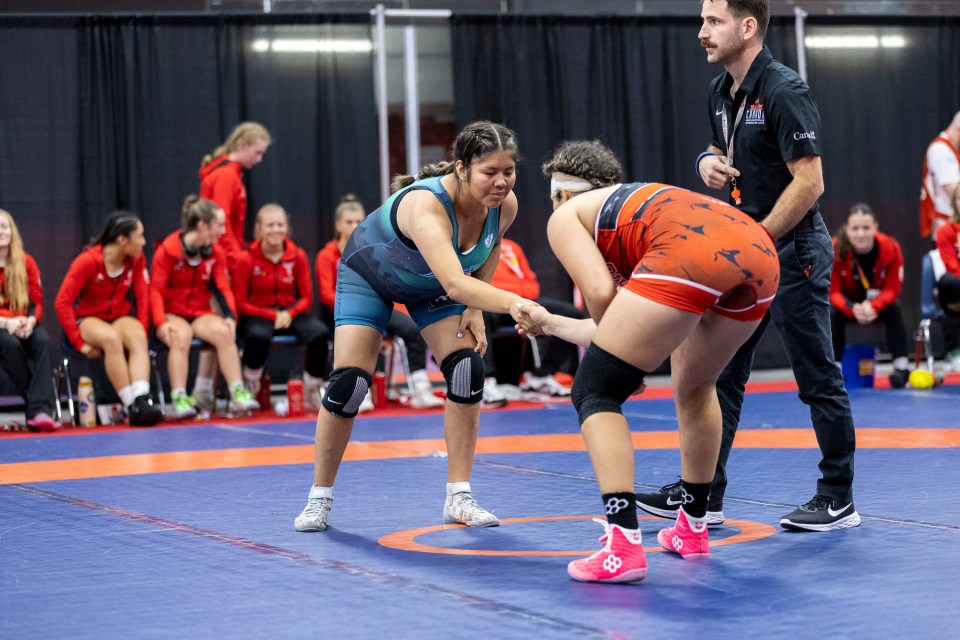 Hannah Bekale prepares for a bout against Ontario. Ollie Williams/Team NT
Hannah Bekale prepares for a bout against Ontario. Ollie Williams/Team NT
“I’m the only Tłı̨chǫ here and it’s crazy to me, because I didn’t think I’d be doing this,” said Bekale.
“I feel like, as a Tłı̨chǫ girl, there’s a lot of anger. But you don’t put it on the wrestling. You just have fun and you challenge yourself.”
Bekale was planning to leave the sport after this Canada Games adventure. Following a day of experiencing the atmosphere inside the Glacier Arena, she isn’t so sure.
“It seemed so much fun. Pin trading, meeting new people, all of it just seemed so exciting. So I kind-of can’t give up wrestling,” she said.
“It’s really loud, it’s really exhilarating, and I feel kind-of overwhelmed, but you just go with it,” said Nendsa.
“I mean, it’s just fuelling you to keep going, and maybe one day have these people cheering for you.”
Editor’s note: The author of this article is also serving as Team NT’s volunteer media liaison for the 2025 Canada Games. Cabin Radio has coverage from St John’s on its website and on the air from 10am-12pm each weekday during the Games.
Related Articles

